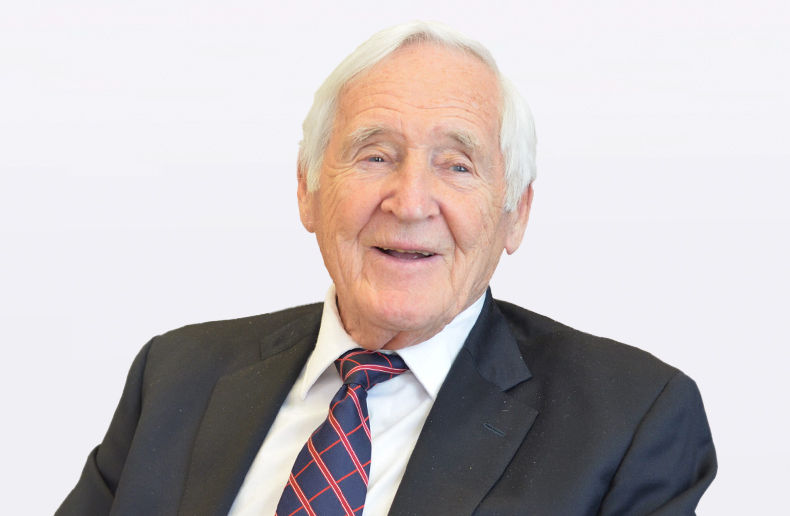Financial advisors who disregard the signs of the rising demand for socially responsible investment products run the risk of losing business to those practitioners who already offer them to their clients, experts warn.
Socially responsible investing (SRI) involves buying and selling mutual funds that invest in companies which, aside from their financial performance, are also evaluated for their environmental, social and governance practices (see The Pillars of SRI on page 26).
Mutual funds are individual investors’ chief point of entry into the Canadian SRI market. There are more than 70 SRI funds presently available to Canadians, holding a combined total amount of a little more than $12 billion in assets, show the most recent figures of the Social Investment Organization (SIO), a Toronto-based, non-profit group, dedicated to the advancement of SRI.
Top manufacturers and distributors of SRI products in Canada include independent mutual funds firms, such as Inhance Investment Management, the Ethical Funds Company, and Acuity. Great-West Life and London Life also offer SRI segregated funds.
Emerging trend
According to the SIO and other observers, Canada’s retail mutual funds market is poised to grow green in an unprecedented way over the next couple of years, as the trendsetting institutional investors turn increasingly towards SRI solutions.
Over the past year, the Canada Pension Plan Investment Board, the Caisse de dépôt et placement du Québec, and the British Columbia Investment Management Corp., have officially made a commitment to look at environmental and social issues as part of their investment and decision making process, by becoming signatories to the Principles for Responsible Investing, a United Nations-led initiative (see Canadian pension funds turn to SRI on page 27).
To have Canada’s largest pension funds embrace socially responsible investing speaks loudly in favour of this financial sector, applauds Gary Hawton, chief-executive officer of Cambridge, Ontario-based Meritas Mutual Funds Inc.
“Institutional investors are often at the leading edge of the next big trend,” says Mr. Hawton, pointing to the hedge funds industry to support this view. “Pension Funds were the first ones to invest in the hedge funds industry way before individual investors ever paid attention to it,” he recalls.
Retail market to turn green
The message sent out to the market by Canadian pension funds in favour of SRI solutions is already resonating in the ears of a mounting number of individual investors, Mr. Hawton assures.
“It is not a big surprise to us to see that our business has grown by 50% this past year because of the things that we are seeing on the institutional side.”
By the end of 2006, Meritas had doubled its total assets under management to close to $140 million, up from $70 million compared to the previous year, reveals Mr. Hawton.
The company is now confident of almost doubling again its assets under management to 250 M$, by the end of 2007.
Canadian pension funds now recognize that environmental, social and governance issues can have an effect on the overall performance of a portfolio, points out Mr. Hawton.
“And they are starting to push that mandate. And I think more and more individual investors will say ‘me too’ very soon,” he adds.
Financial advisors should see this as a clear indication of the direction towards which the Canadian retail mutual funds market is set to move in the next couple of years: that is straight down the SRI path.
Advisors must get ready now to supply the growing demand of SRI mutual funds, advises Michael Jantzi, founder of Toronto-based Jantzi Research Inc., an investment research firm that screens companies for environmental, social and governance performance. The firm also compiles the Jantzi Social Index, a benchmark index for Canadian SRI mutual funds.
He agrees with Mr. Hawton that the retail market often follows trends you see on the institutional side of the business. “So if you wish to know where the retail market is going to go, just look at where the institutional market has gone,” he states.
In addition, the institutional side of the business is increasingly paying more serious attention to environment and to social issues, he remarks.
“It just makes sense looking at historical patterns that that is where the retail market is also going to go,” predicts Mr. Jantzi.
Eugene Ellmen, executive director of the SIO concurs. He considers what he calls the “mainstreaming” of SRI to be the key issue now affecting the socially responsible investment sector. “It is emerging from an ethical niche into more of a mainstream approach,” Mr. Ellmen explains.
“Canadians are in favour of having their pension funds invest in SRI companies, because they think that the financial community should take social and environmental issues more into account,” says Mr. Ellmen.
Mr. Jantzi regularly holds information sessions about SRI aimed at advisors from all over the country. According to him, advisors should profit from Canadian investors’ desire to invest while making a difference.
Financial advisors oblivious of this emerging trend run the risk of losing business to those competitors who already offer their clients SRI products, he and other observers believe.
“Most advisors don’t seem to understand that they have an absolutely golden opportunity to build their business,” he affirms. “They can build that business by tapping into the desire of investors to do something on the environmental front for example.”
“So I simply ask advisors a question: ‘if you’re not going to tell your client about socially responsible investing, do you want your competitor to tell your client about it? Do you want someone else to provide them with the opportunity to connect the dots? Because, if you don’t do it, your competitor will,’” he warns.
SRI advisors cash in
That warning has started to ring true in favour of many SRI advisors. Sucheta Rajagopal, a Toronto-based investment advisor with Hampton Securities Ltd., is a perfect example of this.
Ms. Rajagopal made the decision to specialize in SRI mutual funds seven years ago. In doing so, she says she has capitalized directly from the fact that some of her competitors would not offer their clients SRI mutual funds.
“A lot of my clients were with some other advisors, but decided to leave them,” admits Ms. Rajagopal. “They usually tell me they got interested in SRI after hearing about it, but that their initial advisor would not offer them the possibility of buying these funds.”
She adds that those clients went in search of an advisor who would sell them SRI funds and found her. Today 100% of her clients are invested in these funds.
Johnny Fansher, a registered representative of Ten Star Financial Inc., and president of Ontario-based, Johnny Fansher Financial, concurs. Some of his present clients have also walked out on their former advisors who would not offer them a SRI option.
In August 2004, Mr. Fansher made the commitment to exclusively offer socially responsible investments through his practice. “Since making this decision, my business has grown by leaps and bounds,” he assures. He declined to reveal the amount of assets under management in his book of business.
In 2005, Mr. Fansher registered the trademark “invest in your conscience” in an effort to advance public awareness of the social investment movement.
“My mission is to inspire socially conscious actions by individuals, organizations, and communities,” he states.
Based in Montreal, Kenneth Thorpe, a registered representative of Triglobal Capital Management Inc., is another advisor that says he is reaping benefits from the reticence of some of his competitors to offer their clients SRI mutual funds.
“I don’t know how many of my clients have come to see me because their former advisors didn’t offer them SRI funds, or because their banks do not carry these products. I get tons of referrals,” he says.
Oftentimes, while shopping around, potential SRI clients simply come across the Social Investment Organization’s website (www.socialinvestment.ca). The organization allows advisors who specialize in SRI to post their profiles on its website. Frequently, clients have called these advisors after seeing their posted profiles on the SIO website, they say.
How to be a green advisor
So what does it take to become a “green” advisor? “Interest in the issues at hand is part of the answer,” responds Mr. Thorpe. “Otherwise wouldn’t it be hypocritical to sell products you don’t believe in?” he asks. “Becoming a member of the SIO is a good way to become better informed about SRI,” he adds.
Mr. Thorpe’s interest in SRI led him to co-founding an investment club that specializes in socially responsible investing. Known as the Ethical Investment Group, the club now has 49 members. These range from young people with a social conscience to baby boomers with an inheritance to invest.
Criticisms of SRI
A common knock against socially responsible investing is that SRI mutual funds would restrict an investor’s portfolio mix by limiting investment choices and, therefore, would be more risky as a result.
Another argument raised against SRI is that there is a premium to be paid for being socially responsible that necessarily diminishes investment return.
But these allegations have been largely dismissed in light of new facts, SRI proponents respond.
Some of these SRI funds have proven to be just as competitive as their conventional counterparts. The Ethical Special Equity Fund, a Canadian small cap fund, sponsored by the Ethical Funds Company was a winner at the 2006 Canadian Investment Awards, last September.
Also SRI indices have over long periods of time outperformed or matched traditional financial indices such as the TSX and S&P.
The Jantzi Social Index (JSI), for example, increased in value by 4.30% during the month of November 2006. For the same period, the S&P/TSX Composite Index and the S&P/TSX 60 Index increased by 3.52% and 4.30% respectively.
From its inception on January 1, 2000 through November 30, 2006, the JSI achieved an annualized return of 8.48%, while the S&P/TSX Composite and the S&P/TSX 60 had annualized returns of 7.98% and 7.56% respectively, over the same period.
Until today, we have outperformed the S&P/TSX Composite and the S&P/TSX 60 index,” says Mr. Jantzi, whose firm, Jantzi Research, compiles the JSI. “So do these results prove that SRI gets better returns? “Of course they don’t,” he answers, “but they are one piece of the puzzle showing that SRI and competitive returns can go hand-in-hand.”
“For the people who say to me you can either invest in a way that is line with your values, or you can invest to make money…I tell those people that they can invest in a responsible manner and be profitable at the same time.”
In addition, SRI mutual fund companies have also diversified their asset classes. For example, Acuity has over $8.5 billion in assets under management on behalf of high net worth individuals, and pension funds, in mutual funds that cover most asset classes. Acuity, which also sells conventional funds, has three Acuity Clean Environment Mutual Funds, and two Acuity Social Values Mutual Funds.
The Ethical Funds Company sponsors a family of 14 funds that also cover most asset classes, despite the fact that it screens companies for industrial relations, racial equality, tobacco, military production, nuclear energy and environmental practices. These are just some examples.
At $65.5 billion in 2004, market penetration of socially responsible investments accounted for only 3.6% of the country’s total individual and institutional assets under management, reveals the most recent Canadian Social Investment Review by the SIO. This is an increase from 3.3 per cent in 2002.
The SIO estimates that between 300,000 and 500,000 Canadians have invested in these products, says Mr. Ellmen. The 2006 SIO report was not yet available at press time.
“At 3.6%, our view is that there is clearly untapped potential for socially responsible investments, and lots of opportunities for advisors and the financial industry to respond to this underlying concern by Canadian investors,” says Mr. Ellmen.
Advisors remain reticent
In spite of this, most financial advisors are still reticent to the idea of even offering SRI products to their clients, deplores Kerry Ho, chief executive officer at Inhance Investment Management.
Mr. Ho insists that he prefers the expression environment, social and governance investment (ESG) funds – an expression he qualifies as being more up to date than that of “SRI funds”.
Early adopters of “ESG” have become leaders in that sector, he affirms. “But the reason mainstream advisors are not jumping on board is because we are still seen as a niche and as a specialty market. We need to overcome this by awareness and education,” says Mr. Ho.
Many advisors still believe that socially responsible investment is synonym to sacrificing returns on investment for a good cause, underlines Mr. Ho.
But that is not so, he assures. Mr. Ho affirms that, above all, an ESG mutual funds company – just like any other conventional mutual funds company – needs to deliver on performance if it wishes to remain in the race. And delivering on performance requires “good management.”
Bottom line: it all comes down to good management, and people tend to forget this, Mr. Ho says. “First and foremost, we are hard-nosed managers who use ESG to mitigate risk and add extra value.”
“We are just as competitive as any other fund company in terms of management expense ratios, and it doesn’t cost you any more, so why don’t you do it?” he asks.
“Most advisors are unaware of SRI mutual funds”, also deplores Elaine McHarg, senior vice-president and chief marketing officer, of Vancouver-based The Ethical Funds Company, which holds $2.2 billion in assets under management.
“It is only normal because conventional mutual funds are huge. They are big drivers,” she says.
Ms. McHarg claims that the mission of SRI mutual funds firms is not to convince advisors and investors to completely drop conventional mutual funds.
“What we wish advisors would do is to add sustainability to their clients’ portfolios,” she says.
To illustrate her point, Ms. McHarg compares SRI mutual funds to the green vegetables clients may put on their plate, at a buffet restaurant.
“You know vegetables are good for you. But then you also add some of the foods that taste good – these being conventional mutual funds – right next to them,” she comments.
“So we are not saying that we want to replace conventional funds by SRI funds. What we tell advisors is to add SRI to their suite of options.”
She adds that last year the company launched a life cycle ethical fund called the Life Cycle Ethical Funds Series. “That is proof that we are a regular mutual funds company in that we keep up with market trends. But above all this, we take into account sustainability criteria that other fund companies do not necessarily pay attention to.”
Author(s): Reynaldo Marquez
Socially responsible investing (SRI) involves buying and selling mutual funds that invest in companies which, aside from their financial performance, are also evaluated for their environmental, social and governance practices (see The Pillars of SRI on page 26).
Mutual funds are individual investors’ chief point of entry into the Canadian SRI market. There are more than 70 SRI funds presently available to Canadians, holding a combined total amount of a little more than $12 billion in assets, show the most recent figures of the Social Investment Organization (SIO), a Toronto-based, non-profit group, dedicated to the advancement of SRI.
Top manufacturers and distributors of SRI products in Canada include independent mutual funds firms, such as Inhance Investment Management, the Ethical Funds Company, and Acuity. Great-West Life and London Life also offer SRI segregated funds.
Emerging trend
According to the SIO and other observers, Canada’s retail mutual funds market is poised to grow green in an unprecedented way over the next couple of years, as the trendsetting institutional investors turn increasingly towards SRI solutions.
Over the past year, the Canada Pension Plan Investment Board, the Caisse de dépôt et placement du Québec, and the British Columbia Investment Management Corp., have officially made a commitment to look at environmental and social issues as part of their investment and decision making process, by becoming signatories to the Principles for Responsible Investing, a United Nations-led initiative (see Canadian pension funds turn to SRI on page 27).
To have Canada’s largest pension funds embrace socially responsible investing speaks loudly in favour of this financial sector, applauds Gary Hawton, chief-executive officer of Cambridge, Ontario-based Meritas Mutual Funds Inc.
“Institutional investors are often at the leading edge of the next big trend,” says Mr. Hawton, pointing to the hedge funds industry to support this view. “Pension Funds were the first ones to invest in the hedge funds industry way before individual investors ever paid attention to it,” he recalls.
Retail market to turn green
The message sent out to the market by Canadian pension funds in favour of SRI solutions is already resonating in the ears of a mounting number of individual investors, Mr. Hawton assures.
“It is not a big surprise to us to see that our business has grown by 50% this past year because of the things that we are seeing on the institutional side.”
By the end of 2006, Meritas had doubled its total assets under management to close to $140 million, up from $70 million compared to the previous year, reveals Mr. Hawton.
The company is now confident of almost doubling again its assets under management to 250 M$, by the end of 2007.
Canadian pension funds now recognize that environmental, social and governance issues can have an effect on the overall performance of a portfolio, points out Mr. Hawton.
“And they are starting to push that mandate. And I think more and more individual investors will say ‘me too’ very soon,” he adds.
Financial advisors should see this as a clear indication of the direction towards which the Canadian retail mutual funds market is set to move in the next couple of years: that is straight down the SRI path.
Advisors must get ready now to supply the growing demand of SRI mutual funds, advises Michael Jantzi, founder of Toronto-based Jantzi Research Inc., an investment research firm that screens companies for environmental, social and governance performance. The firm also compiles the Jantzi Social Index, a benchmark index for Canadian SRI mutual funds.
He agrees with Mr. Hawton that the retail market often follows trends you see on the institutional side of the business. “So if you wish to know where the retail market is going to go, just look at where the institutional market has gone,” he states.
In addition, the institutional side of the business is increasingly paying more serious attention to environment and to social issues, he remarks.
“It just makes sense looking at historical patterns that that is where the retail market is also going to go,” predicts Mr. Jantzi.
Eugene Ellmen, executive director of the SIO concurs. He considers what he calls the “mainstreaming” of SRI to be the key issue now affecting the socially responsible investment sector. “It is emerging from an ethical niche into more of a mainstream approach,” Mr. Ellmen explains.
“Canadians are in favour of having their pension funds invest in SRI companies, because they think that the financial community should take social and environmental issues more into account,” says Mr. Ellmen.
Mr. Jantzi regularly holds information sessions about SRI aimed at advisors from all over the country. According to him, advisors should profit from Canadian investors’ desire to invest while making a difference.
Financial advisors oblivious of this emerging trend run the risk of losing business to those competitors who already offer their clients SRI products, he and other observers believe.
“Most advisors don’t seem to understand that they have an absolutely golden opportunity to build their business,” he affirms. “They can build that business by tapping into the desire of investors to do something on the environmental front for example.”
“So I simply ask advisors a question: ‘if you’re not going to tell your client about socially responsible investing, do you want your competitor to tell your client about it? Do you want someone else to provide them with the opportunity to connect the dots? Because, if you don’t do it, your competitor will,’” he warns.
SRI advisors cash in
That warning has started to ring true in favour of many SRI advisors. Sucheta Rajagopal, a Toronto-based investment advisor with Hampton Securities Ltd., is a perfect example of this.
Ms. Rajagopal made the decision to specialize in SRI mutual funds seven years ago. In doing so, she says she has capitalized directly from the fact that some of her competitors would not offer their clients SRI mutual funds.
“A lot of my clients were with some other advisors, but decided to leave them,” admits Ms. Rajagopal. “They usually tell me they got interested in SRI after hearing about it, but that their initial advisor would not offer them the possibility of buying these funds.”
She adds that those clients went in search of an advisor who would sell them SRI funds and found her. Today 100% of her clients are invested in these funds.
Johnny Fansher, a registered representative of Ten Star Financial Inc., and president of Ontario-based, Johnny Fansher Financial, concurs. Some of his present clients have also walked out on their former advisors who would not offer them a SRI option.
In August 2004, Mr. Fansher made the commitment to exclusively offer socially responsible investments through his practice. “Since making this decision, my business has grown by leaps and bounds,” he assures. He declined to reveal the amount of assets under management in his book of business.
In 2005, Mr. Fansher registered the trademark “invest in your conscience” in an effort to advance public awareness of the social investment movement.
“My mission is to inspire socially conscious actions by individuals, organizations, and communities,” he states.
Based in Montreal, Kenneth Thorpe, a registered representative of Triglobal Capital Management Inc., is another advisor that says he is reaping benefits from the reticence of some of his competitors to offer their clients SRI mutual funds.
“I don’t know how many of my clients have come to see me because their former advisors didn’t offer them SRI funds, or because their banks do not carry these products. I get tons of referrals,” he says.
Oftentimes, while shopping around, potential SRI clients simply come across the Social Investment Organization’s website (www.socialinvestment.ca). The organization allows advisors who specialize in SRI to post their profiles on its website. Frequently, clients have called these advisors after seeing their posted profiles on the SIO website, they say.
How to be a green advisor
So what does it take to become a “green” advisor? “Interest in the issues at hand is part of the answer,” responds Mr. Thorpe. “Otherwise wouldn’t it be hypocritical to sell products you don’t believe in?” he asks. “Becoming a member of the SIO is a good way to become better informed about SRI,” he adds.
Mr. Thorpe’s interest in SRI led him to co-founding an investment club that specializes in socially responsible investing. Known as the Ethical Investment Group, the club now has 49 members. These range from young people with a social conscience to baby boomers with an inheritance to invest.
Criticisms of SRI
A common knock against socially responsible investing is that SRI mutual funds would restrict an investor’s portfolio mix by limiting investment choices and, therefore, would be more risky as a result.
Another argument raised against SRI is that there is a premium to be paid for being socially responsible that necessarily diminishes investment return.
But these allegations have been largely dismissed in light of new facts, SRI proponents respond.
Some of these SRI funds have proven to be just as competitive as their conventional counterparts. The Ethical Special Equity Fund, a Canadian small cap fund, sponsored by the Ethical Funds Company was a winner at the 2006 Canadian Investment Awards, last September.
Also SRI indices have over long periods of time outperformed or matched traditional financial indices such as the TSX and S&P.
The Jantzi Social Index (JSI), for example, increased in value by 4.30% during the month of November 2006. For the same period, the S&P/TSX Composite Index and the S&P/TSX 60 Index increased by 3.52% and 4.30% respectively.
From its inception on January 1, 2000 through November 30, 2006, the JSI achieved an annualized return of 8.48%, while the S&P/TSX Composite and the S&P/TSX 60 had annualized returns of 7.98% and 7.56% respectively, over the same period.
Until today, we have outperformed the S&P/TSX Composite and the S&P/TSX 60 index,” says Mr. Jantzi, whose firm, Jantzi Research, compiles the JSI. “So do these results prove that SRI gets better returns? “Of course they don’t,” he answers, “but they are one piece of the puzzle showing that SRI and competitive returns can go hand-in-hand.”
“For the people who say to me you can either invest in a way that is line with your values, or you can invest to make money…I tell those people that they can invest in a responsible manner and be profitable at the same time.”
In addition, SRI mutual fund companies have also diversified their asset classes. For example, Acuity has over $8.5 billion in assets under management on behalf of high net worth individuals, and pension funds, in mutual funds that cover most asset classes. Acuity, which also sells conventional funds, has three Acuity Clean Environment Mutual Funds, and two Acuity Social Values Mutual Funds.
The Ethical Funds Company sponsors a family of 14 funds that also cover most asset classes, despite the fact that it screens companies for industrial relations, racial equality, tobacco, military production, nuclear energy and environmental practices. These are just some examples.
At $65.5 billion in 2004, market penetration of socially responsible investments accounted for only 3.6% of the country’s total individual and institutional assets under management, reveals the most recent Canadian Social Investment Review by the SIO. This is an increase from 3.3 per cent in 2002.
The SIO estimates that between 300,000 and 500,000 Canadians have invested in these products, says Mr. Ellmen. The 2006 SIO report was not yet available at press time.
“At 3.6%, our view is that there is clearly untapped potential for socially responsible investments, and lots of opportunities for advisors and the financial industry to respond to this underlying concern by Canadian investors,” says Mr. Ellmen.
Advisors remain reticent
In spite of this, most financial advisors are still reticent to the idea of even offering SRI products to their clients, deplores Kerry Ho, chief executive officer at Inhance Investment Management.
Mr. Ho insists that he prefers the expression environment, social and governance investment (ESG) funds – an expression he qualifies as being more up to date than that of “SRI funds”.
Early adopters of “ESG” have become leaders in that sector, he affirms. “But the reason mainstream advisors are not jumping on board is because we are still seen as a niche and as a specialty market. We need to overcome this by awareness and education,” says Mr. Ho.
Many advisors still believe that socially responsible investment is synonym to sacrificing returns on investment for a good cause, underlines Mr. Ho.
But that is not so, he assures. Mr. Ho affirms that, above all, an ESG mutual funds company – just like any other conventional mutual funds company – needs to deliver on performance if it wishes to remain in the race. And delivering on performance requires “good management.”
Bottom line: it all comes down to good management, and people tend to forget this, Mr. Ho says. “First and foremost, we are hard-nosed managers who use ESG to mitigate risk and add extra value.”
“We are just as competitive as any other fund company in terms of management expense ratios, and it doesn’t cost you any more, so why don’t you do it?” he asks.
“Most advisors are unaware of SRI mutual funds”, also deplores Elaine McHarg, senior vice-president and chief marketing officer, of Vancouver-based The Ethical Funds Company, which holds $2.2 billion in assets under management.
“It is only normal because conventional mutual funds are huge. They are big drivers,” she says.
Ms. McHarg claims that the mission of SRI mutual funds firms is not to convince advisors and investors to completely drop conventional mutual funds.
“What we wish advisors would do is to add sustainability to their clients’ portfolios,” she says.
To illustrate her point, Ms. McHarg compares SRI mutual funds to the green vegetables clients may put on their plate, at a buffet restaurant.
“You know vegetables are good for you. But then you also add some of the foods that taste good – these being conventional mutual funds – right next to them,” she comments.
“So we are not saying that we want to replace conventional funds by SRI funds. What we tell advisors is to add SRI to their suite of options.”
She adds that last year the company launched a life cycle ethical fund called the Life Cycle Ethical Funds Series. “That is proof that we are a regular mutual funds company in that we keep up with market trends. But above all this, we take into account sustainability criteria that other fund companies do not necessarily pay attention to.”














